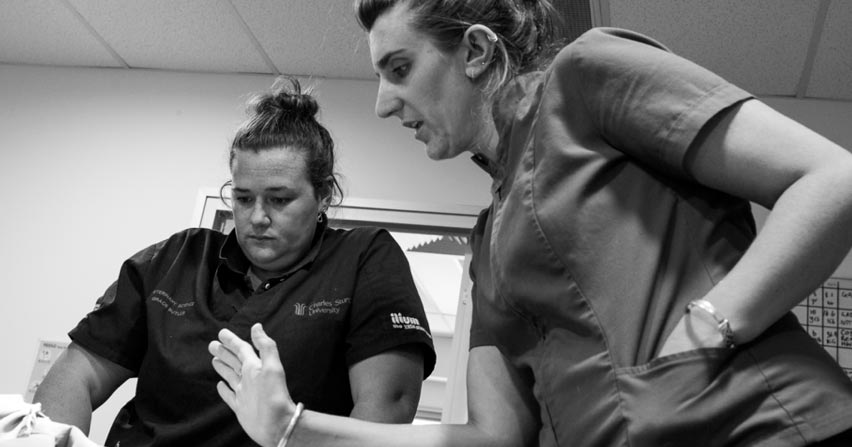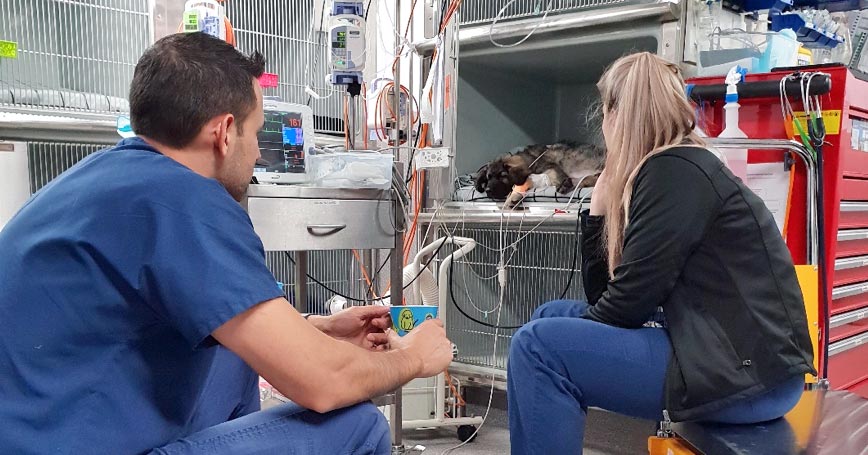When it comes to a course as busy and hectic as veterinary medicine, it can be easy to let certain things slide – especially around exam time.
There’s the occasional group event, the odd party and, of course, the big one – a healthy lifestyle.
I know from experience that when the grind really sets in, it’s all too easy to let these things go. However, I also know from experience that this can actually be counterproductive.
Hand in hand
When exams are always looming on the horizon, the choice between body or mind can seem like an all too easy one – since they aren’t going to be grading you on the number of vegetables you’ve consumed, or the hours of exercise you’ve done this week, it doesn’t always seem like a choice at all.
That’s why I wanted to give a little reminder that the two do, in fact, go hand in hand, and it is actually achievable to pass your exams and make it through your university years while subsisting on anything other than takeaway meals and four hours of sleep a night.
Working on your problem areas is the first step. If you struggle getting eight hours a night because you always know in the back of your mind there’s still work to be done, set yourself a schedule. During exam season, for example, I don’t let myself work past 8pm and the rest of the evening is for me.
Little and often
Staying on top of your workload on the lead-up to exams also does wonders, and doing “little and often” means you don’t find yourself with a mountain of work that keeps you up late into the night. If you absolutely have to get on top of the work and can’t find the time, try going to bed a little earlier and getting up a little earlier. You might just find you work better after a full night of sleep than blearily rubbing your eyes at gone midnight.
If you struggle to find time to socialise and exercise and when things get busy, one has to go – try joining a sports team or society and combining the two.
If you’re the person who finds it easier to skip meals to get a little extra studying in, just try to take note from what you’re actually studying. If you’re in a medical degree, whatever stage you’re at, you are blessed with the gift (or maybe the curse) of knowledge.
We’re all taught the dangers of under-eating or overeating, how blood sugar affects cognitive function and sleep quality… blah blah blah. These are things we all know like the back of our hand.
So, what’s the point of cramming our brains with all of this content if we don’t act on any of it or use it to our advantage?

Consider the future
Now, if this article has struck a chord with you, and you need any more motivation, just think to the future.
I know right now stress is a key driver for skipping meals, exercise and getting a few hours’ sleep, and you might fully intend to break these habits once you’ve graduated and reached the greener grasses on the other side, but the thing to keep in mind is, even if you end up in the veterinary job of your dreams, it won’t be without stress or deadlines, or work always in the back of your mind. All the reasons to skip meals and sleep will still be there.
But if you can get a handle on it now and learn to look after yourself in these early days, it will follow you into the rest of your career.
And, quite frankly, even the most competent vet is going to struggle to command respect if they’re falling asleep at the consult table or giving advice to owners of how to take care of their pets when they’re still struggling to take care of themselves.
Not selfish
I think a lot of vets need to hear this – both students and fresh graduates especially. Your first patient, every day, has to be you.
Remember, you are important, your health is important, and it matters just as much as any of your patients. If you’re not healthy, how can you do what you do to the best of your ability?
By looking after yourself, you are looking after each of the animals you treat. It’s not selfish to look after your body just as much as your mind – it is essential.















